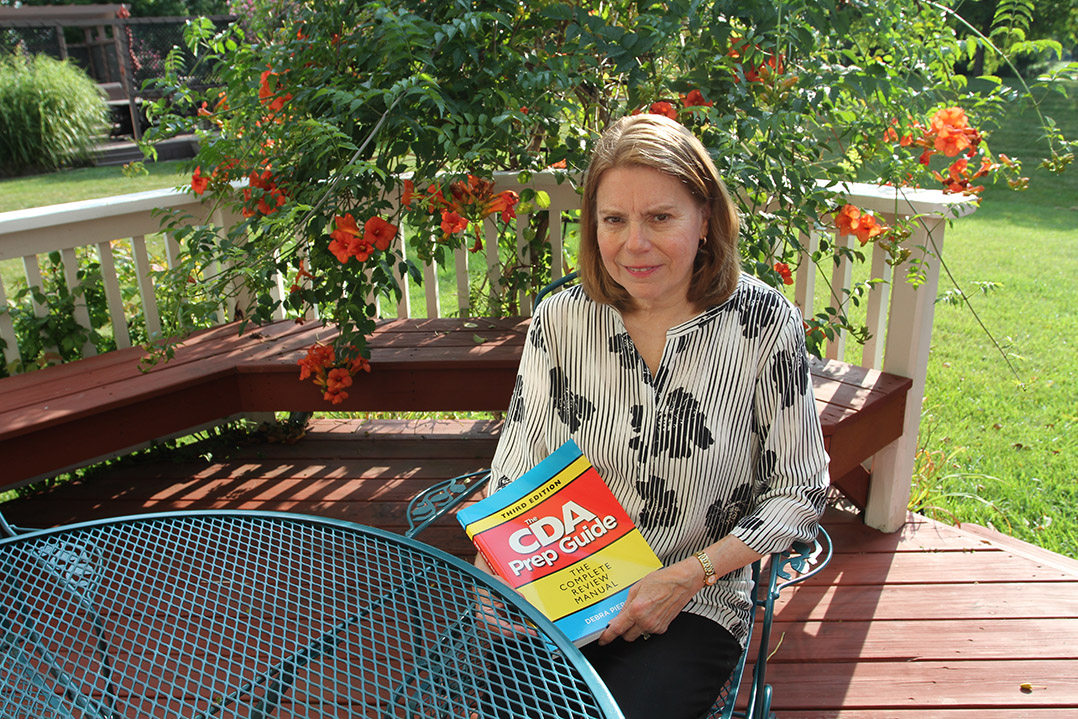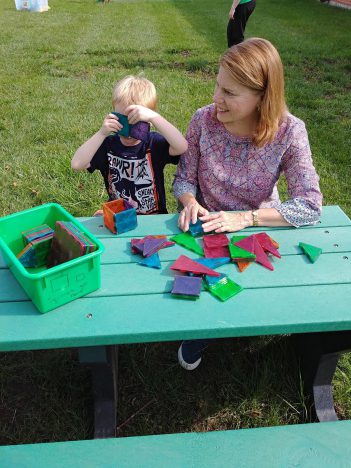
By Heather Collins
Debra Pierce, a 67-year-old Fishers resident, is passionate about helping shape young minds and helping the teachers who shape them.
“We are, after all, training the people who will be responsible for the care and education of our youngest and most precious during the years that are the most critical to their development,” Pierce said.
Pierce has been in the Early Childhood profession for more than 40 years and is a professor of Early Childhood Education at Ivy Tech. She was recently nominated by the Academy of Education Arts and Sciences for a Bammy Award for Professor of the Year and was named the 2016 Educator to Watch.
To assist Early Education caregivers, Pierce wrote a book, “The CDA Prep Guide: The Complete Review Manual for the Child Development Associate Credential,” that is now in its third edition. There will soon be a fourth edition. The book assists students with earning their Child Development Associate (CDA) credential. The CDA is a national credential and is often required for child care licensing.
“When a parent entrusts his precious child into someone’s care, that should encompass a keen awareness of proper health and safety practices, child development, curriculum, appropriate guidance techniques and how to promote relationships with families,” Pierce said.
In order to acquire a CDA, students must complete 120 hours of early childhood training, build a 60-page Professional Portfolio that includes seven essays; justify their practices in the classroom in six different areas; and write a Professional Philosophy Statement. The candidate is then observed for three hours by a representative from the Council for Professional Recognition and must complete a 60-question exam.
“For the most part, training agencies only provide the training and no help with all the rest of the process,” Pierce said. “Consequently, candidates become confused and overwhelmed. Many drop out of the process. I saw this happening, and it became my main goal to write a prep guide, much like those for the SAT or M-CAT, for this credential.”
The guide is used at hundreds of organizations and colleges throughout the nation, including more than 50 locations in New Jersey alone.
Pierce said there is a critical shortage of care providers in early education. Indiana recently raised funding for state-sponsored child care, doubling the number of pre-K programs from 520 to 1,098 in the last six years.
“The increase was instituted after much work by advocates to convince lawmakers of the need for preschool education for young Hoosiers,” Pierce said. “Fortunately, their efforts and research pointing to its importance made continued, and even expanded, funding a reality.”
Patti Dickman, a colleague of Pierce and associate professor in the Early Childhood Education Program at Ivy Tech Community College, said Pierce spearheaded the First Impressions Day, a day when students are provided with an opportunity to listen to directors and child care professionals from around Indianapolis about the profession. During First Impression Days, Ivy Tech students learn what will be expected of them as an employee, how to conduct themselves in a professional interview and often are asked to complete an official interview at a child care center with the goal of receiving a job offer.
“(Pierce) is a fantastic teacher and mentor, willing to share her knowledge and expertise with students as well as other colleagues,” Dickman said.
Pierce said her passion is providing young children with quality teachers.
“This is what I do on a daily basis,” Pierce said. “When they finish our program, I have seen them grow from a novice to someone I would embrace as the teacher of my grandchild.”
Pierce said people who are considering a career in Early Childhood Education need to have an innate desire to work with young children.
“This is not a job. This is not watching kids or babysitting,” Pierce said. “This is a full-on commitment to caring and teaching. It takes patience, flexibility and unconditional love.”
Pierce said some of the rewards for working with young children include seeing their “a-ha!” moments, helping them discover things that fascinate them and building close relationships with the families based on the foundation of benefiting the child’s learning and development.
“All of those things made my soul smile,” Pierce said.
Pierce said as she looks ahead to retirement, she plans to launch a hybrid online Early Childhood training organization with several of her colleagues.
Pierce said she looks forward to the organization’s launch and continuing her work to benefit young children.
For more, visit easycda.com.

The importance of pre-K program
According to Pierce, a child’s brain grows to 90 percent of adult size by age 5.
“Some of the most important take-aways from attending a quality preschool may be things other than academics,” Pierce said. “They are skills that enable people to interact appropriately with others. Children learn important skills like controlling their tempers, keeping an open mind and the ability to focus. These are things they will need to be successful in the future, and in life in general. If we project 20 years into the future, without investments in early childhood education, we can expect a less educated workforce, lower earning ability, less taxes being paid and an increased reliance on preventable social services.”



